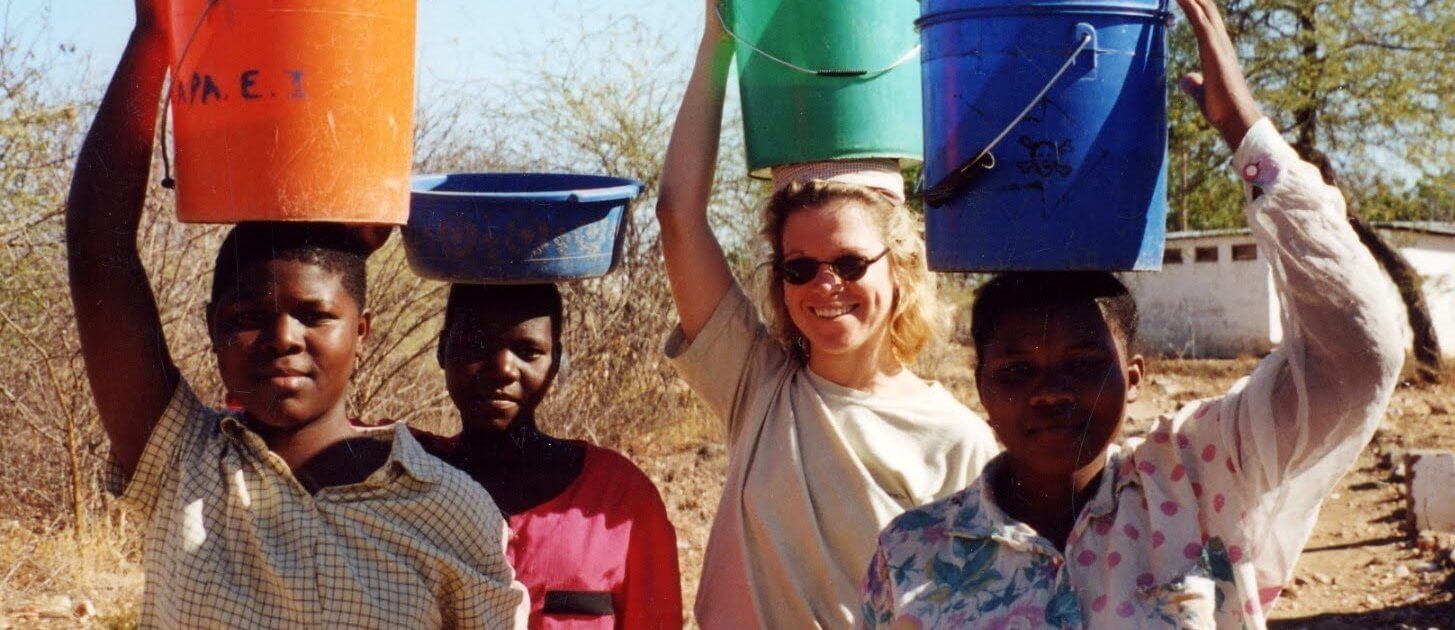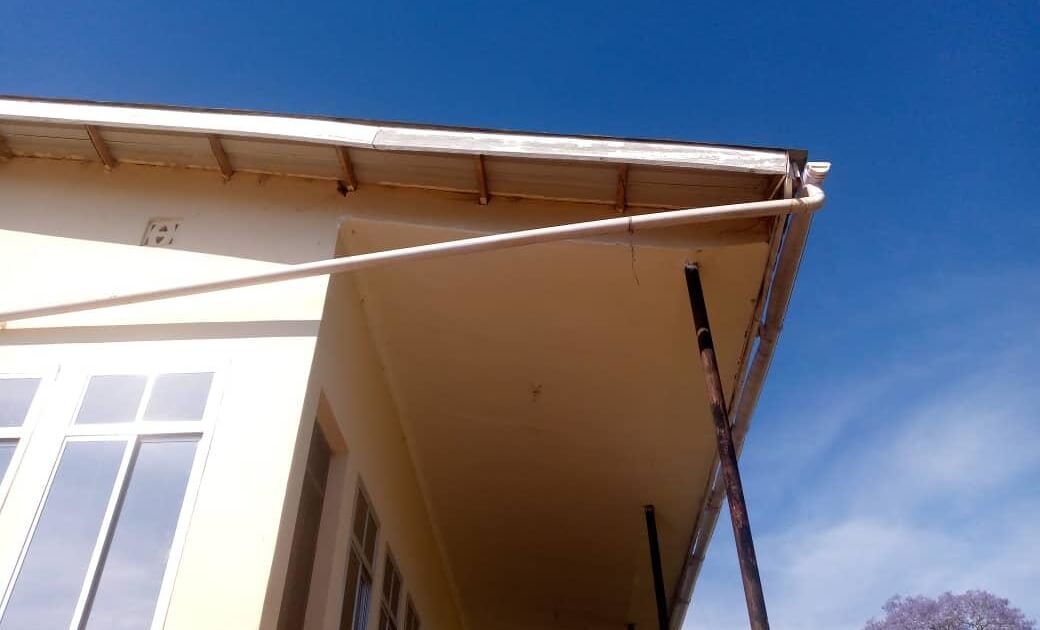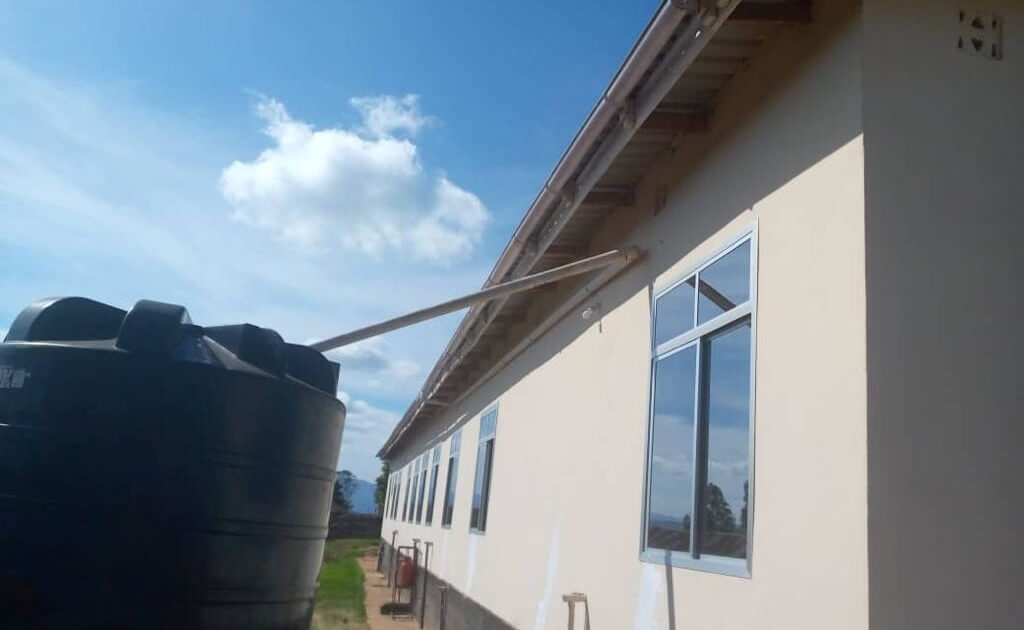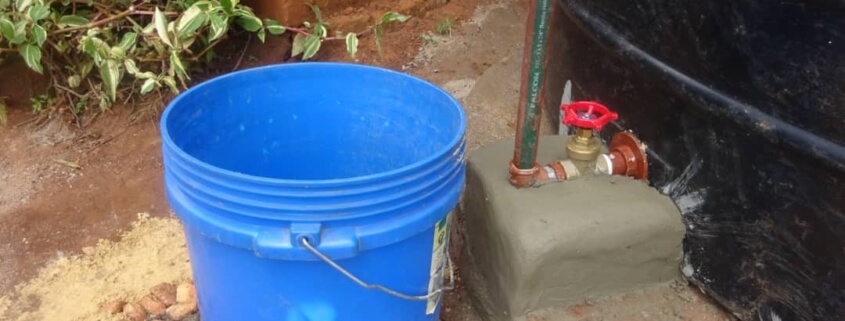Harvesting Rainwater in Tanzania Transforms Families’ Lives
According to the World Health Organization, most of us, about 57 percent of the world’s population, simply turn a tap to get clean running water in our homes. It’s a convenience we repeatedly take for granted. But hundreds of millions of others who don’t have access to running water walk great distances to streams or wells for water which too often isn’t safe to drink. In rural Tanzania, lack of clean water threatens families’ health, household and economic activities, and children’s education. Husna Waziri, Global Volunteers’ Reaching Children’s Potential (RCP) Technology Manager, explains how harvesting household rainwater in the Ukwega Ward is transforming village life.
In Tanzania, 43 percent of the population lacks access to clean drinking water. Moreover, the country spends 70 percent of its already tight health budget on preventable diseases caused by lack of water, sanitation, and hygiene.

Husna says the ‘RCP Program’s comprehensive approach, which addresses health, food, nutrition, and cognitive development, includes strategies for harvesting and conserving rainwater to optimize outcomes.
Little Water, Lots of Problems
The primary method for supplying water to village homes in the Ukwega Ward is fetching it from rivers and streams and carrying it on your head in plastic buckets, hoping not to spill too much. But walking the mountains balancing a bucket of water on your head is challenging and poses serious hazards.
According to the United Nations, 785 million people in the world did not have even basic drinking water services in 2017.
Global Volunteers RCP Program offers families the opportunity to harvest rainwater from the roofs of their homes and any other close by buildings making water available right where families need it. Husna says close, safe access to water provides several advantages simultaneously:
- Preventing illness caused by diarrhea and other diseases arising from poor hygiene.
- Reducing the need to farm land far from home near distant irrigation sources such as streams.
- Improving economic and domestic productivity by eliminating the inordinate amount of time spent collecting water.
- Increasing children’s time in classrooms and studying because they don’t need to collect water for school and home.
- Enhancing a family’s ability to wash clothing and bedding for optimal health.
- Helping ensure everyone has enough clean water to drink every day.
In the January – February, 2020 rainy season, through the generosity of Global Volunteers alumni volunteers, we installed two new rainwater harvesting systems at the homes of RCP families in Makalanga and Ipalamwa. As additional funds are raised, more families will benefit from these life-giving, time-saving systems. Our goal is to eventually supply every RCP family with a rainwater harvesting system to secure their long-term health. At the same time, the Tanzanian government has adopted a nationwide rainwater harvesting initiative as part of its Development Vision 2025.
Harvesting Water is a Simple and Reliable Solution
The RCP Center employs a demonstration water harvesting system using gutters, pipes, filters, and storage tanks to collect and store rainwater. Husna explains the methodology: “Metal sheet roofs are more effective than other types. U-shaped PVC gutters are attached to the end of the roof and held at a slope to allow rainwater to run in one direction. These gutters are joined by connectors so that they cover the whole side of a roof. At the end, there is a joint with one output which directs the water to a 10,000-liter poly tank.”

The impact on RCP families’ lives is significant, Husna asserts. Mothers and school children are most often tasked to collect the family’s water, consuming many hours each day that could be better spent caring for infants, working at the women’s coop, attending classes, or studying. But with a household harvesting system, that time is no longer wasted. “This system allows us to have access to water year-round. When the rainy season starts, if you harvest water, you don’t have to worry about scarcity anymore. Depending on the size of your storage tank and the number of family members, you can even harvest water to use until the next rainy season.”
Global Volunteers and local families have begun installing demonstration household rainwater harvesting systems in the Ukwega Ward. Having a reliable source of water is transformational, says RCP mother Evalina Msola of Ipalamwa. “Before the availability of water, Evalina used to walk almost 45 minutes one way to search for water in nearby river basins. But sometimes the walk was pointless as there was no water available,” Husna relates.
Worldwide, almost 300,000 children under five die annually from diarrheal diseases due to poor sanitation, poor hygiene, or unsafe drinking water, according to UNICEF.
“I used to wake up early in the morning and leave around 5:00 am with my small baby on my back,” Evalina explained, “because I had no one to leave her with at that time. I had to spend a lot of time fetching water, which was not enough for household chores anyway, and lack of clean water caused stomach diseases to my children.”
“The worst thing I still remember is when my husband and I were building our house,” Evalina continued. “We did not finish as we planned due to the lack of water, and we couldn’t afford to hire a person to fetch what we needed. There was a time when there was too much sun and not enough water, which caused the walls to be dry, and that caused the construction to be in bad condition.”

Evalina’s family was one of the first to begin harvesting water with the RCP Program’s support. “We were able to finish our home and be more efficient with daily activities. Now we have access to clean water for cooking and cleaning,” she concluded.
“A water harvesting system is not a complicated technology, and it will last for a long time,” Husna said. Through the community’s work and volunteers’ generous support, hundreds of families like Evalina’s will eventually benefit from easy access to water as household systems are installed with RCP designated funds from donations. Each catchment system, adequate for a family of seven, can be used for decades and includes a 5,000-liter poly tank and all the necessary gutters, screens, filters, and spouts for assembly. But these systems require an upfront investment, which impoverished families don’t have. You can help. Please contribute to supply a family with clean, accessible, life-saving water.
You may also like:




Leave a Reply
Want to join the discussion?Feel free to contribute!